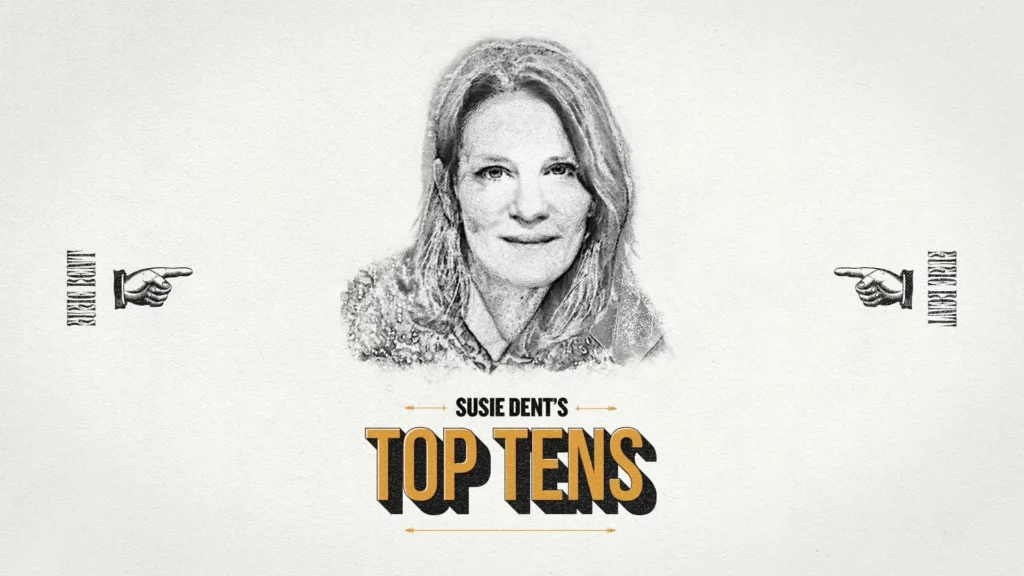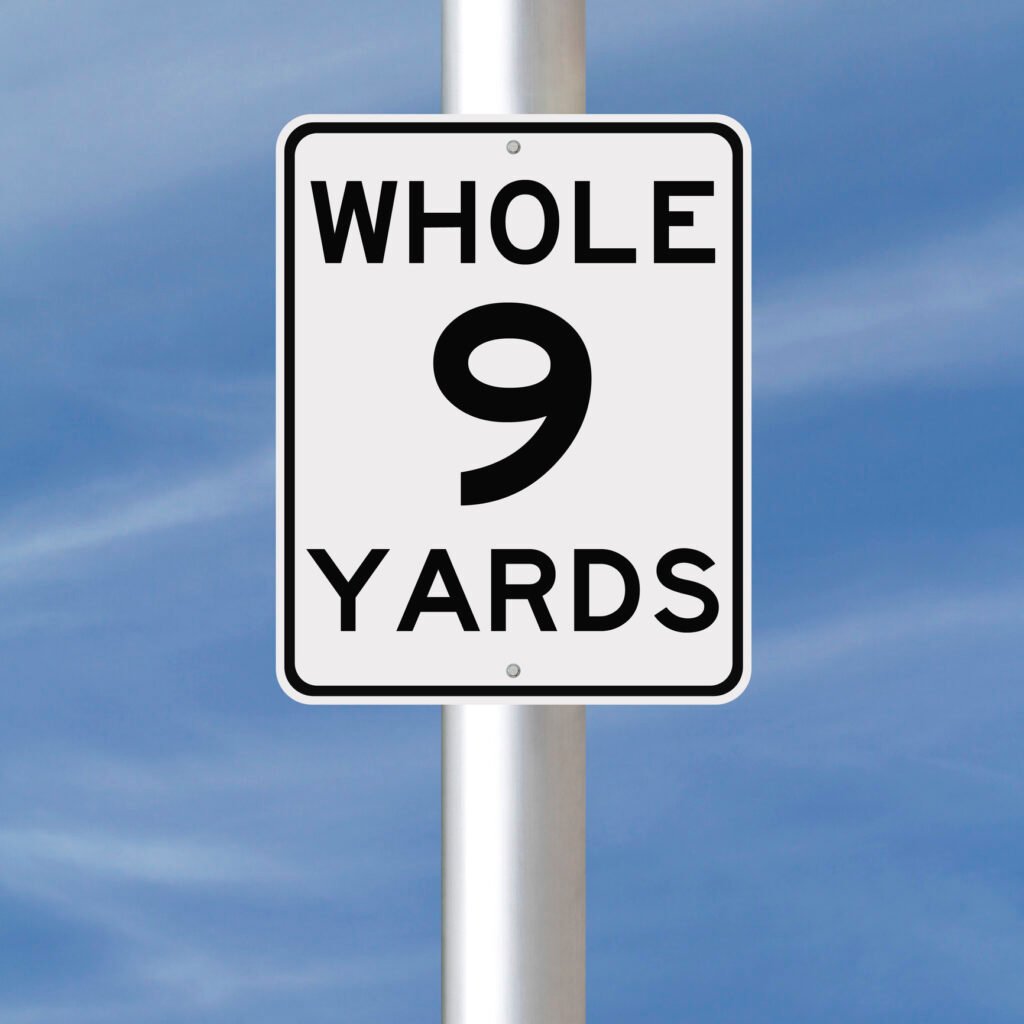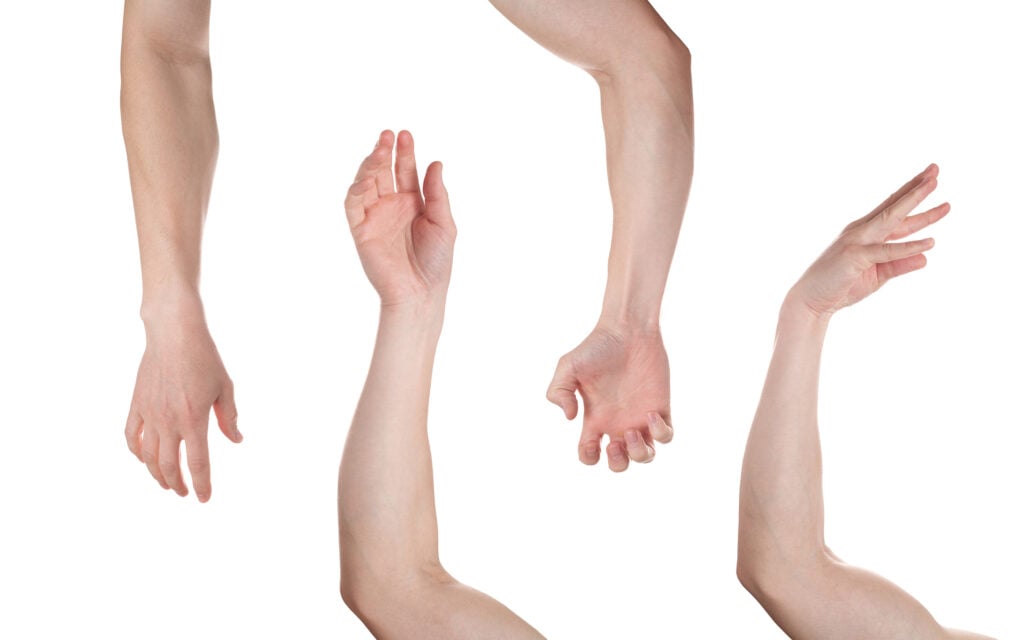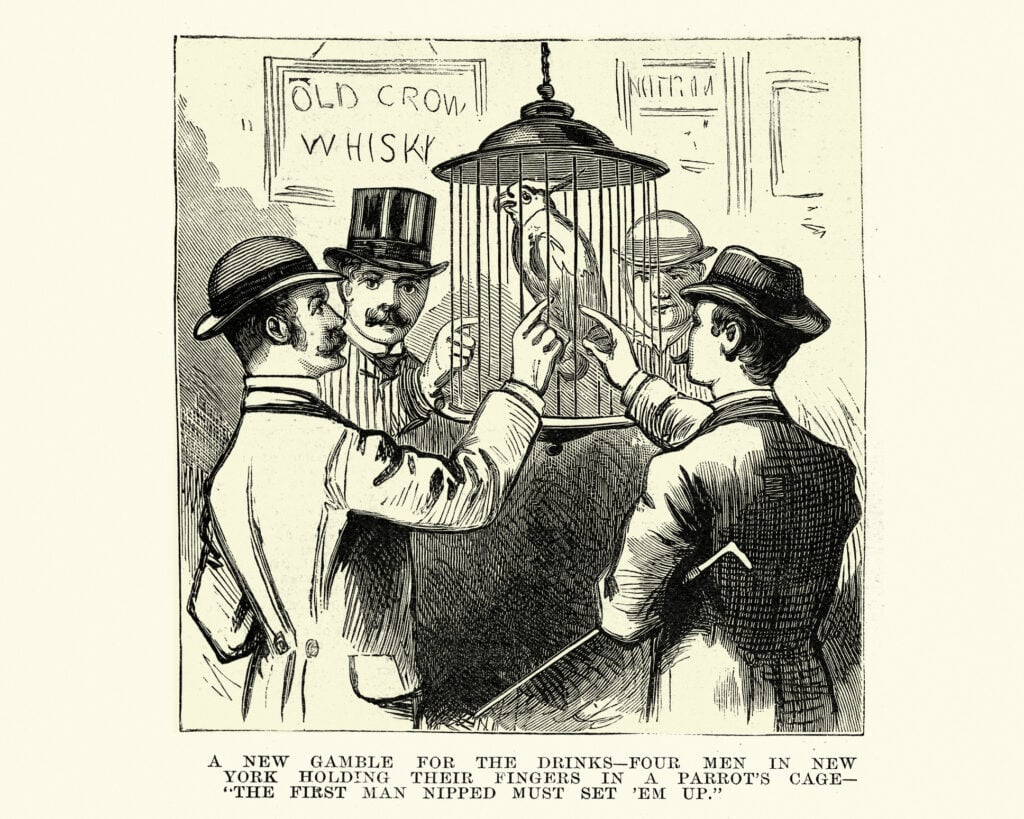In the second installment of her series on Great Big Story, Susie Dent looks at phrases from whisky measurements to pebble weights, with this week’s ten of the best all inspired by numbers.

- Twenty-twenty vision
This measurement of perfect eyesight comes from the Snellen chart, used to measure our visual acuity as we sit in the optician’s chair and read out rows of letters in decreasing sizes. 20/20 vision means that a row of letters near the bottom of the chart can be read at a distance of 20 feet. Today’s measurements are metric, so normal vision is expressed as 6/6 vision – though it might take English a little while to catch up.
2. The whole nine yards
This metaphor for ‘the complete package’ has attracted all manner of stories involving measurements containing the number nine, from the length of a hangman’s noose and the capacity in cubic yards of a ready-mixed cement truck to the dimensions of a nun’s habit. One of the most popular involves the length of a Spitfire’s ammunition belt – to let it out to the max is to use up all the ammo and go full force on the enemy. Sadly, evidence is lacking for all of them, and the work goes on. It doesn’t take away from the fun of guessing though.

3. On cloud nine
There are many numerical degrees of happiness. We can be in seventh heaven, for example, which refers to the most exalted of the heavens in Islamic doctrine. We can also occupy cloud nine, which some believe derives from the nine classes of angels in Christian cosmology, in which the seraphim, the ninth and highest class, are closest to God. Another theory involves a meteorological guide published in 1896 called the International Cloud Atlas, in which the ninth classification was the lofty and fluffy ‘cumulonimbus’. We do know that the expression was popularized by a 1950s US radio show, in which a fictional insurance investigator called Johnny Dollar was involved in various misadventures. Every time he was knocked unconscious, he was taken to ‘cloud nine’ to recover. If only life was that easy.
4. Trivial
Triviality is all about the number three. For the Romans, the trivium was the place where three ways met: a crossroads where people would gather and exchange gossip. Some say this is where the adjective ‘trivial’ originated, but it was actually first used in the Middle Ages for the lower division of the seven liberal arts, comprising grammar, rhetoric, and logic. The idea of these being ‘basic’ studies gave rise to the idea of something commonplace and ‘trivial’.
Read More: Susie Dent’s Top Tens: 10 ‘Americanisms’ that aren’t actually American
5. Scruple
The very first meaning of ‘scruple’ was a sharp pebble. Having one in your shoe might cause you great unease, leading you to walk very carefully – or scrupulously – indeed. Soon after, a scruple was a unit of weight equivalent to 20 grains or 1/24 oz, used by apothecaries. Over its lifetime the word has produced more numbers than Abba. It has been, variously, a Roman land-measure of ten feet square, one-sixtieth of an hour (aka a minute) or one-twelfth of an inch. Who knew that all of these small measurements go back to the idea of a tiny pebble?
6. umpteen
Signals regiments in the army once knew the dash in Morse code as an ‘umpty’, while the dot was called the ‘iddy’. ‘Umpty’ then became a general English expression for any indefinite number. Eventually, ‘umpteen’ was created as a riff on ‘thirteen’, ‘fourteen’, etc.

7. ell
An ell was an old measurement of length, taken from a part of the body in the same way as ‘foot’. The ‘ell’ was the forearm, and was originally measured as roughly 18 inches from the elbow to the fingertips. The ‘elbow’ was the ‘bow’ or bend of the ell.
8. kitty-cornered
If something is placed ‘kitty-cornered’ or ‘cater-cornered’, it is placed diagonally or a little askew. ‘Cater’ here (and its cute variant ‘kitty’) comes from the French quatre, ‘four’, and was once used for the four dots on a dice which form diagonals. Needless to say, no cats were harmed (or even involved) in the making of this phrase.

9. nip
Those who enjoy a nip of whisky of an evening might already know that the word is short for ‘nipperkin’, a small measure for beer, wine, or spirits containing about half a pint or just under (which would, if we’re talking whisky, be more of a bite than a nip).
10. sesquipedalian
Know someone who is overly fond of long words (ahem)? The adjective sesquipedalian is applied with a hefty dose of irony to cumbersomely pedantic vocabulary and its users. The word comes from the Roman poet Horace’s sesquipedalia verba, ‘words a foot-and-a-half-long’.





